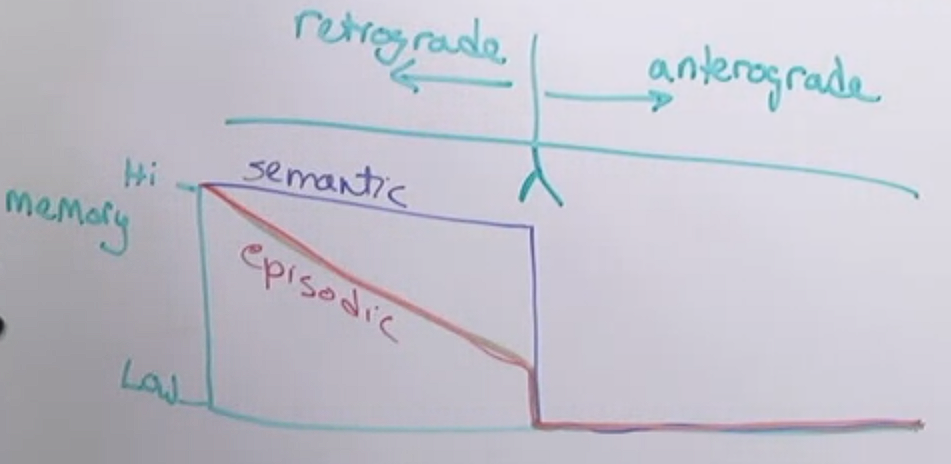Hippocampus and Memory Formation
- Hippocampal function is crucial for memory formation.
- Amnesia patients typically have impaired hippocampal function.
Impact on Memory Types
- Inability to form new memories: Both semantic (factual knowledge) and episodic (personal experiences) memories cannot be created without a functioning hippocampus. This is known as anterograde amnesia.
- Preservation of existing memories: Semantic memories are stored in the neocortex and remain intact in amnesia.
- Gradual loss of episodic memories: Episodic memories rely on the hippocampus for consolidation and retrieval. Damage to the hippocampus results in the loss of episodic memories, starting with the most recent ones and gradually affecting older memories. This is called retrograde amnesia.

Clinical Presentation of Amnesia
- Anterograde amnesia: Complete inability to form new declarative memories.
- Retrograde amnesia: Graded loss of episodic memories, with recent memories being lost first.
- Emotional impact: Amnesia can be a devastating condition for both the patient and their loved ones.
Conclusion
The hippocampus plays a vital role in memory formation and retrieval. Damage to this brain region results in significant memory impairments, affecting both the ability to create new memories and the retention of old ones. Amnesia is a complex condition with profound consequences for individuals and their families.